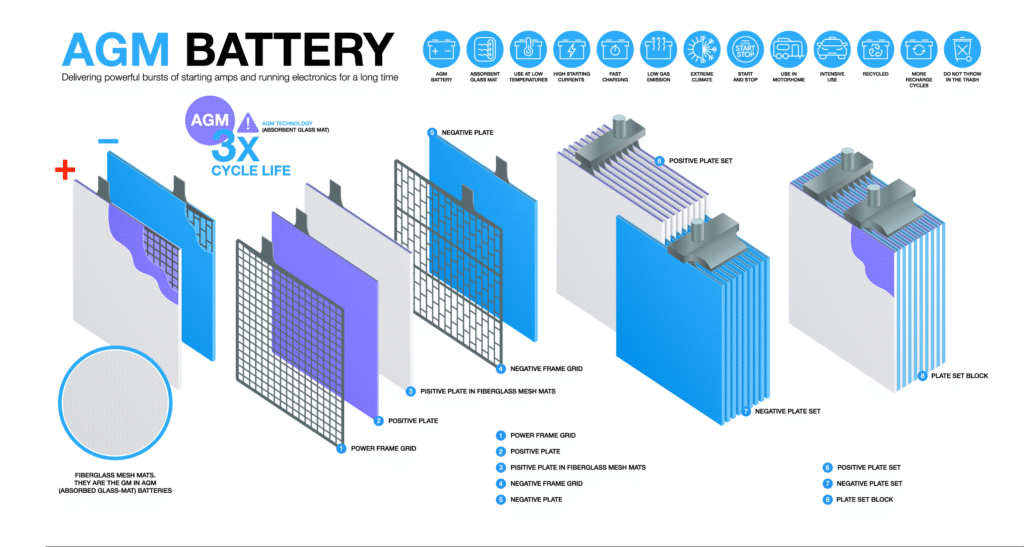
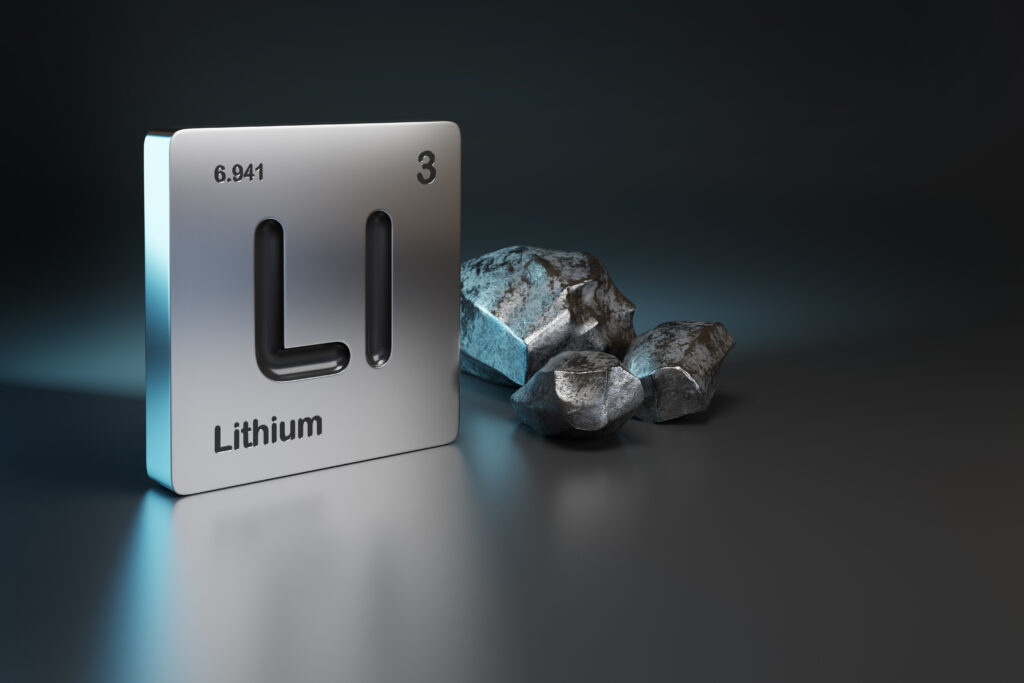
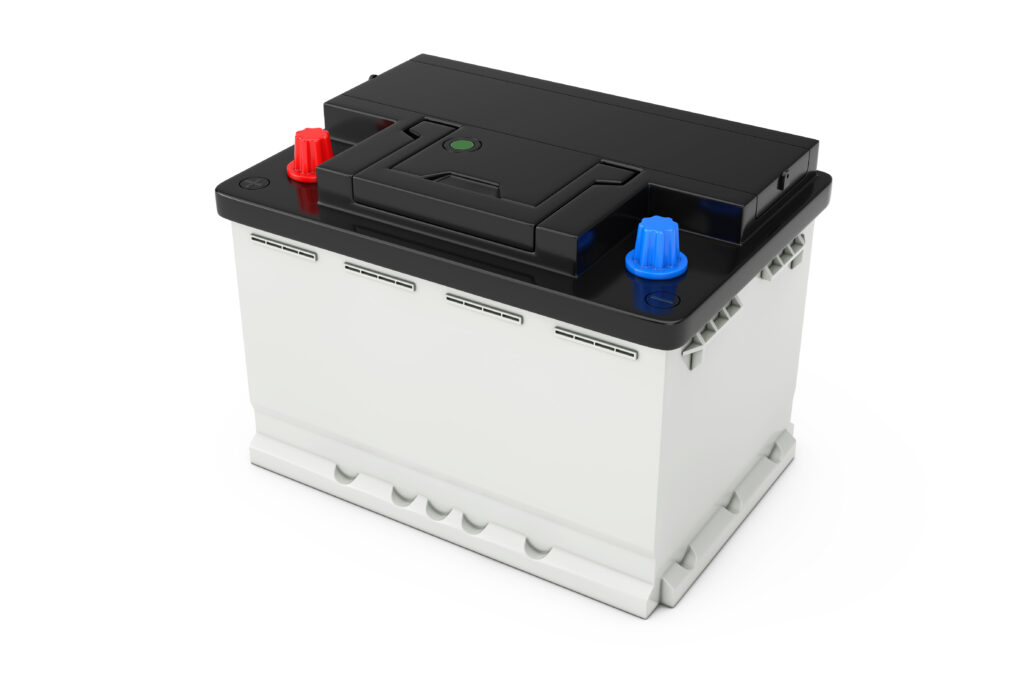
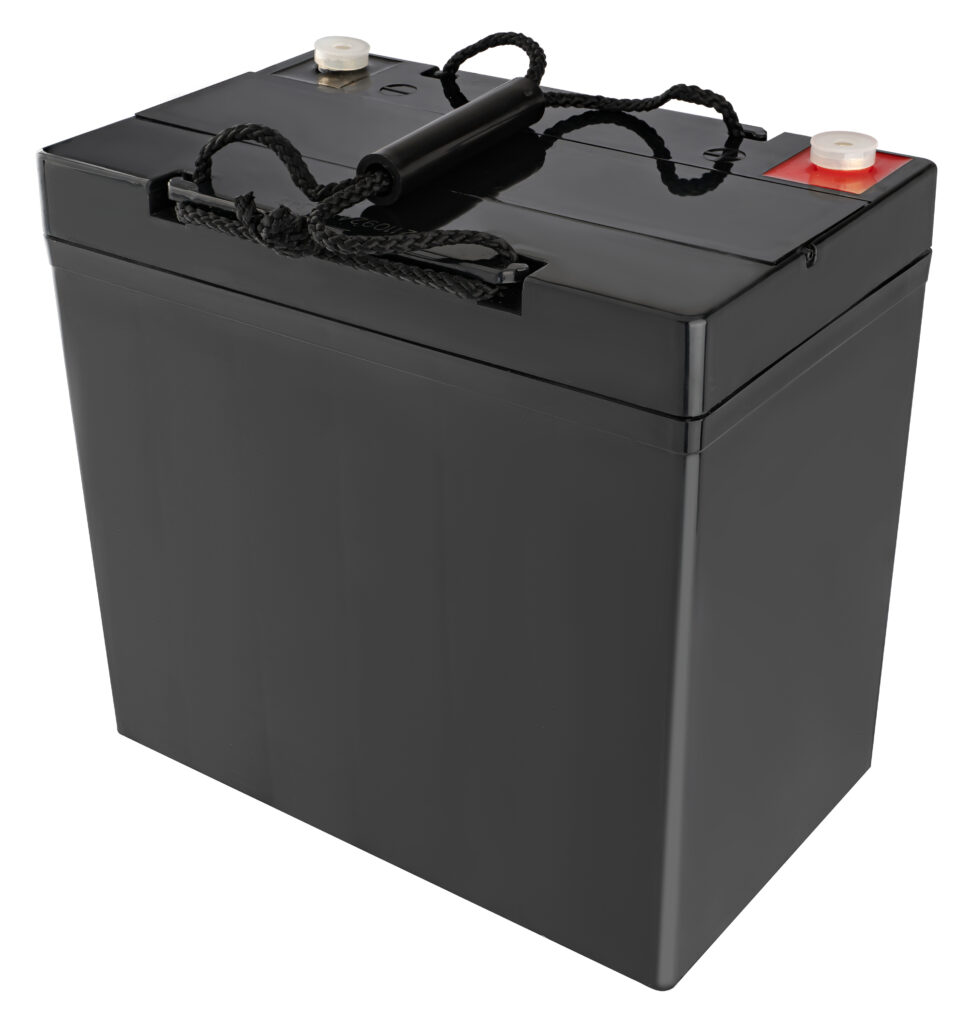
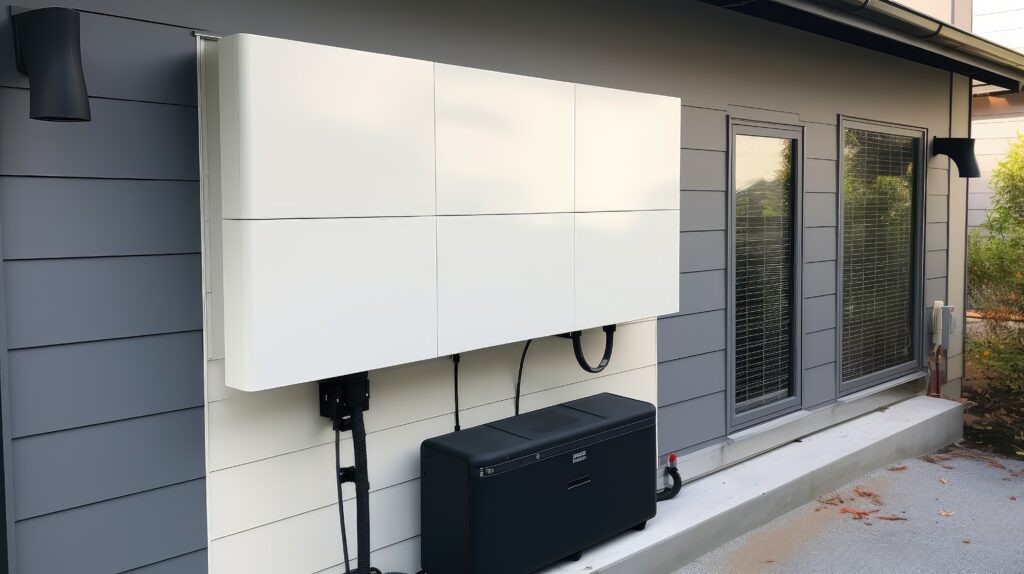
شمسی توانائی جدید توانائی کے حل کا ایک لازمی جزو بن گئی ہے، پائیداری اور توانائی کی آزادی کو فروغ دیتی ہے۔ جیسے جیسے شمسی ٹیکنالوجی کی ترقی ہوئی، نظام شمسی کے لیے سولر بیٹری اسٹوریج کے انضمام نے اہمیت حاصل کر لی ہے۔ شمسی بیٹریاں گھر کے مالکان اور کاروباری اداروں کو رات کے وقت استعمال کے لیے یا ہنگامی حالات کے دوران توانائی ذخیرہ کرنے کی اجازت دیتی ہیں۔ یہ بلاگ لیتھیم آئن اور لیڈ ایسڈ بیٹریوں کا موازنہ کرتا ہے، شمسی بیٹریوں کی دو مشہور اقسام، ان کی خصوصیات اور توانائی کو مؤثر طریقے سے ذخیرہ کرنے کی صلاحیت پر توجہ مرکوز کرتی ہے۔
سولر بیٹری کا کردار
سولر بیٹریاں سولر پینلز سے پیدا ہونے والی توانائی کے ذخائر کے طور پر کام کرتی ہیں۔ اس ذخیرہ شدہ توانائی کو اس وقت استعمال کیا جا سکتا ہے جب سورج نہ چمک رہا ہو یا بندش کے دوران۔ یہ صارفین کو قابل تجدید توانائی سے فائدہ اٹھانے کے قابل بناتے ہیں، روایتی توانائی کے ذرائع پر انحصار کم کرتے ہیں۔ توانائی کی بڑھتی ہوئی طلب اور بیک اپ پاور کی ضرورت کے ساتھ، صحیح بیٹری سسٹم کا انتخاب بہت ضروری ہے۔
لتیم آئن بیٹریاں
حالیہ برسوں میں، لتیم آئن بیٹریاں سولر مارکیٹ میں مقبولیت میں بڑھ گئی ہیں۔ اس قسم کی سولر بیٹری ہلکی، کمپیکٹ، اور توانائی کی کثافت زیادہ ہوتی ہے، یعنی وہ بیٹری کی دوسری اقسام کے مقابلے میں ایک چھوٹی جگہ میں زیادہ توانائی ذخیرہ کر سکتی ہیں۔
لتیم آئن بیٹریوں کے فوائد:
- اعلی کارکردگی: لیتھیم آئن بیٹریاں عام طور پر زیادہ چارج اور ڈسچارج کی کارکردگی پیش کرتی ہیں، اکثر 90% سے اوپر۔ اس کا مطلب ہے کہ ذخیرہ شدہ توانائی کا زیادہ حصہ قابل استعمال ہے۔
- لمبی عمر: 5 سے 15 سال تک کی سائیکل کی زندگی کے ساتھ، لتیم آئن بیٹریاں متعدد چارج ڈسچارج سائیکلوں کو برداشت کر سکتی ہیں۔
- تیز چارجنگ: وہ تیزی سے چارج کرتے ہیں، جب توانائی کو اچانک بڑھنے کی ضرورت ہوتی ہے تو بہتر ردعمل کی اجازت دیتے ہیں۔
- درجہ حرارت رواداری: وہ کارکردگی کو برقرار رکھتے ہوئے درجہ حرارت کی وسیع رینج میں موثر طریقے سے کام کرتے ہیں۔
- کم از خود خارج ہونے کی شرح: ان کے پاس خود سے خارج ہونے والے مادہ کی شرح کم ہے، مطلب یہ کہ استعمال میں نہ ہونے پر وہ زیادہ دیر تک چارج برقرار رکھتے ہیں۔
تاہم، لتیم آئن بیٹریاں بعض خرابیوں کے ساتھ آتی ہیں:
- زیادہ لاگت: وہ لیڈ ایسڈ بیٹریوں سے زیادہ مہنگی ہوتی ہیں، جو کچھ صارفین کے لیے ابتدائی سرمایہ کاری کو مشکل بنا سکتی ہیں۔
- ری سائیکلنگ کے خدشات: لتیم آئن بیٹریوں کے لیے اختتامی زندگی کا انتظام اور ری سائیکلنگ کے عمل لیڈ ایسڈ بیٹریوں کی نسبت زیادہ پیچیدہ ہیں۔
لیڈ ایسڈ بیٹریاں
لیڈ ایسڈ بیٹریاں ایک صدی سے زیادہ عرصے سے ہیں اور روایتی طور پر شمسی توانائی کے نظام سمیت کئی ایپلی کیشنز میں استعمال ہوتی ہیں۔
لیڈ ایسڈ بیٹریوں کے فوائد:
- لاگت سے موثر: لیڈ ایسڈ بیٹریاں عام طور پر اپنے لیتھیم آئن ہم منصبوں سے سستی ہوتی ہیں، جو انہیں بجٹ سے آگاہ صارفین کے لیے ایک پرکشش آپشن بناتی ہیں۔
- بالغ ٹیکنالوجی: ان کا ثابت شدہ ٹریک ریکارڈ انہیں ایک قابل اعتماد انتخاب بناتا ہے، اور وہ وسیع پیمانے پر دستیاب ہیں۔
- سادہ ری سائیکلنگ: لیڈ ایسڈ بیٹریوں کے لیے ری سائیکلنگ کا عمل اچھی طرح سے قائم اور موثر ہے۔
منفی پہلو پر، لیڈ ایسڈ بیٹریوں کے نمایاں نقصانات ہیں:
- کم توانائی کی کثافت: انہیں ذخیرہ شدہ توانائی کی اسی مقدار کے لیے زیادہ جگہ اور وزن کی ضرورت ہوتی ہے۔
- مختصر عمر: ان کی عام عمر 3 سے 5 سال تک ہوتی ہے، جو لیتھیم آئن بیٹریوں سے کافی کم ہوتی ہے۔
- چارج کرنے کا وقت: انہیں لیتھیم آئن بیٹریوں کے مقابلے چارج ہونے میں زیادہ وقت لگتا ہے، جو ہو سکتا ہے کہ تمام ایپلی کیشنز کے لیے موزوں نہ ہو۔
- گہرے خارج ہونے والے مادہ کی حساسیت: گہرے خارج ہونے سے لیڈ ایسڈ بیٹریوں کو نقصان پہنچ سکتا ہے، جس سے ان کی عمر اور مجموعی تاثیر کم ہو جاتی ہے۔
توانائی ذخیرہ کرنے کی صلاحیت کا موازنہ کرنا
جب توانائی ذخیرہ کرنے کی صلاحیت کی بات آتی ہے تو، لیتھیم آئن بیٹریاں عام طور پر اپنی اعلی توانائی کی کثافت کی وجہ سے پیک کی قیادت کرتی ہیں۔ مثال کے طور پر، ایک عام لیتھیم آئن بیٹری میں توانائی کی کثافت 150-200 Wh/kg ہو سکتی ہے، جبکہ لیڈ ایسڈ بیٹریوں کی حد عام طور پر 30-50 Wh/kg کے درمیان ہوتی ہے۔ اس کا مطلب ہے کہ ایک ہی وزن اور سائز کے لیے، لتیم آئن بیٹریاں نمایاں طور پر زیادہ توانائی ذخیرہ کر سکتی ہیں۔
مثال کے طور پر، اگر ہم 10 کلو واٹ توانائی کو ذخیرہ کرنے کے لیے ڈیزائن کردہ بیٹری سسٹم پر غور کریں:
- ایک لتیم آئن سسٹم کو تقریباً 50-70 کلوگرام کی ضرورت ہوگی۔
- اس کے برعکس، ایک لیڈ ایسڈ سسٹم کو 200 کلوگرام سے زیادہ سٹوریج کی اسی گنجائش کو حاصل کرنے کی ضرورت پڑ سکتی ہے، جس سے تنصیب اور جگہ کی کارکردگی متاثر ہوتی ہے۔
نتیجہ
لیتھیم آئن اور لیڈ ایسڈ بیٹریوں کے درمیان انتخاب مخصوص ضروریات اور حالات پر آتا ہے۔ وہ لوگ جو طویل مدتی وشوسنییتا اور کارکردگی کے خواہاں ہیں وہ اعلی قیمتوں کے باوجود لتیم آئن بیٹریاں قابل قدر تلاش کرسکتے ہیں۔ اس کے برعکس، بجٹ کی رکاوٹوں والے افراد کو لیڈ ایسڈ بیٹریاں دلکش لگ سکتی ہیں، لیکن انہیں مختصر زندگی کی توقعات اور ممکنہ جگہ کی ضروریات کے لیے تیاری کرنی چاہیے۔
شمسی بیٹری سسٹم میں سرمایہ کاری توانائی کی آزادی کی طرف ایک اہم قدم ہے۔ چاہے آپ لتیم آئن یا لیڈ ایسڈ بیٹریوں کا انتخاب کریں، ہر قسم کی باریکیوں کو سمجھنا اس بات کو یقینی بناتا ہے کہ آپ باخبر فیصلہ کریں جو آپ کی منفرد توانائی کی ضروریات کے مطابق ہو۔
اضافی بصیرت کے لیے، دیگر متعلقہ بلاگز جیسے ["سولر پینل کی کارکردگی کو سمجھنا"] اور ["شمسی توانائی کی ٹیکنالوجی کا مستقبل"] دیکھنے پر غور کریں۔ شمسی توانائی کو مؤثر طریقے سے استعمال کرنے کے طریقے تلاش کرتے رہیں!
مزید معلومات اور ماہرانہ حل کے لیے، ملاحظہ کریں۔ اینڈرومیڈا توانائی.
مزید تفصیل کے لیے
https://www.renewableenergyworld.com/


جواب دیں